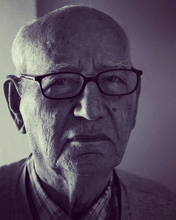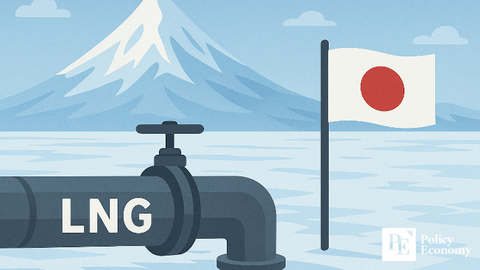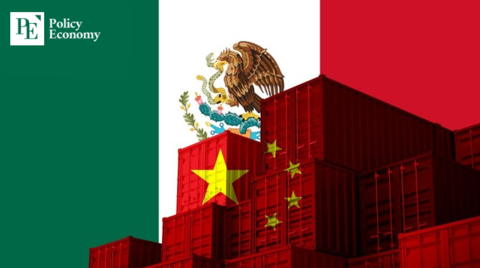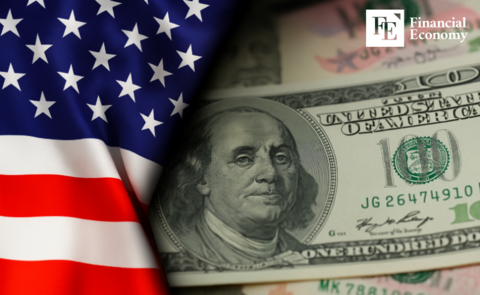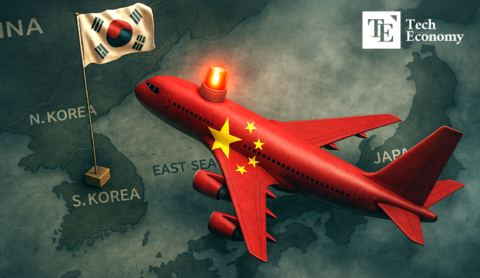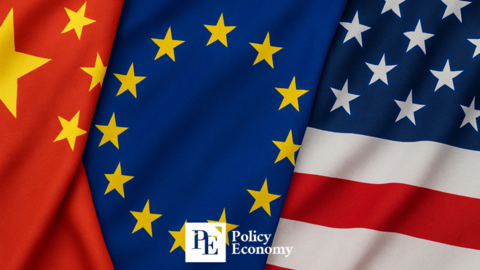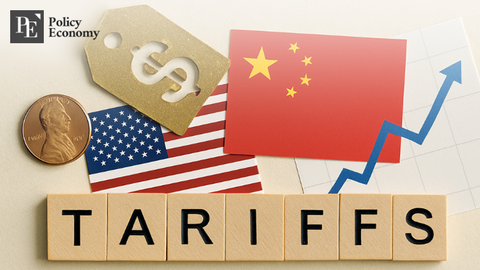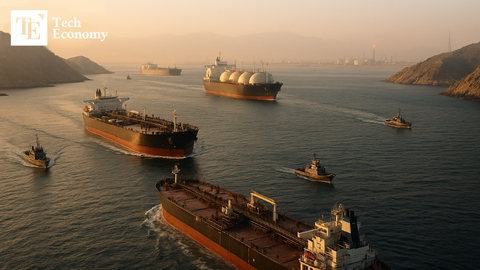'He shouldn't have done that': Donald Trump criticizes Ukraine president over war
Input
Changed
Since taking office on January 20, 2025, President Donald Trump's stance on the conflict in Ukraine has changed. Trump first claimed he could put a stop to the war quickly, even claiming during his campaign that he could do so within 24 hours of assuming office. This quick resolution hasn't happened, though.
Trump has recently acknowledged the difficulties Russian President Vladimir Putin faces, pointing out that Russia is losing more money in the conflict than it is winning. He said, "He can’t be thrilled, he’s not doing so well," and accused Putin of being a bad leader, saying, "Russia is bigger [than Ukraine], they have more soldiers to lose, but that’s no way to run a country."
Additionally, Trump has expressed a desire to put more economic pressure on Russia. In the absence of an immediate peace deal, he threatened to apply "high levels of taxes, tariffs, and sanctions on anything being sold by Russia to the US, and various other participating countries." Moreover, in order to economically isolate Russia, Trump's strategy also includes penalizing its trading partners, such as China, India, Iran, and North Korea.His predecessor, Joe Biden, had previously imposed stringent sanctions and barred the import of the majority of Russian goods, thus this position is consistent with his actions.
Trump has designated Keith Kellogg as a special envoy to help bring Russia and Ukraine to the negotiating table. Kellogg's plan calls for a truce, diplomacy, and the possible placement of European peacekeepers on the front lines in exchange for military assistance.
Elections in Ukraine could be facilitated by a truce, which would alter the political climate in Kyiv. In order to achieve a ceasefire within 100 days, the administration may demand that Ukraine give up its claims to Crimea and several eastern provinces and agree not to apply for NATO membership. Trump seems more concerned with ending the war swiftly, even if it means Ukraine making sacrifices, than Biden, who prioritized maintaining Ukraine's military.
Volodymyr Zelenskyy, the president of Ukraine, has come under fire from Trump, who says an agreement could have been struck sooner by saying that Ukraine shouldn't have opposed Russia's invasion. His remarks reveal a conviction that, rather than establishing a stronger position, Ukraine's resistance may have prolonged the conflict. Trump has also implied that "Zelenskyy was up against a much larger, much more powerful force," he said. We could have worked out a deal, therefore he shouldn't have done that."
Trump has suggested increasing NATO defense expenditure to 5% of GDP, which is a substantial increase from the present goal of 2%. Instead of depending on the military and financial assistance of the United States, he has advocated for Europe to assume greater responsibility for its own security. He wants Europe to shoulder more of the financial burden for Ukraine's support, making sure that European contributions equal or surpass U.S. aid.
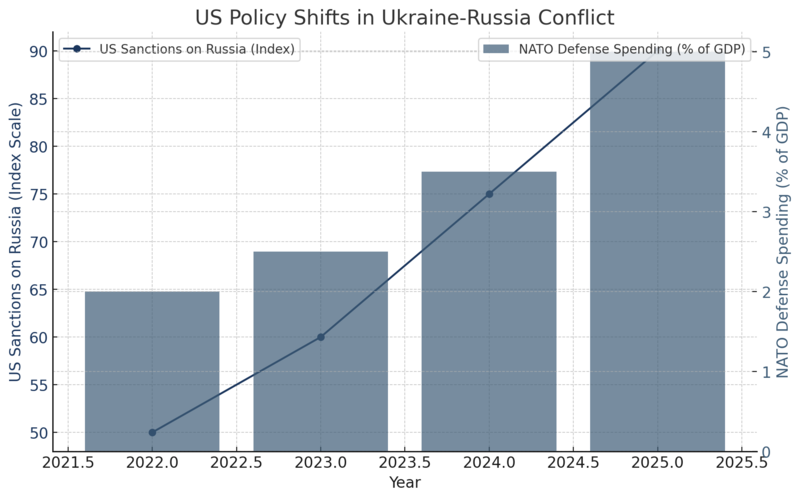
In exchange for ongoing American assistance, Ukraine might agree to guarantee the United States access to its rare earth resources. Security assurances are part of Trump's effort to stop Russian aggression in the future.In order to stop Russia from breaking the truce, he has proposed that NATO or European military could enforce it.The U.S. and European arms supplies to Ukraine are being maintained or increased by his government.
Trump's approach to the conflict between Russia and Ukraine is focused on using economic pressure, transactional negotiations, and diplomacy to bring about a speedy conclusion. His strategy places a higher priority on resolving the conflict while guaranteeing future security, but it may not be in line with Ukraine's goals of NATO membership and total territorial integrity. An agreement that pressures Ukraine into political concessions without ensuring long-term stability may make NATO members wary.
According to his plan, Ukraine might be coerced into agreeing to conditions that are detrimental to its sovereignty because it is the more vulnerable party.
It is speculated that Trump's team may be amenable to political changes in Ukraine, potentially excluding Zelenskyy, given the reference to elections amid a ceasefire. The former head of Ukraine's military, Valerii Zaluzhnyi, has become more popular and may be a better bargaining partner for Russia and the United States. The removal of Zelenskyy, who has a tense relationship with Trump and is a staunch opponent of Putin, may be interpreted as an effort to depersonalize the conversations.
Trump's policy is on ending the war, even if it involves giving up territory, in contrast to the Biden administration's goal of giving Ukraine the authority to drive back Russian forces. This strategy raises the possibility of a "frozen conflict," in which Russia holds onto captured territory while abstaining from further assault. Though specifics are still unknown, Trump is said to have discussed ending the war with Putin. His government seems to be experimenting to see whether political and economic pressures will persuade Russia to engage.
Trump's strategy is based on his commercial negotiation style, which prioritizes deal-making and leverage. He has presented his position as giving nations the option to accept his agreement or suffer financial consequences. Rather than guaranteeing a resounding Ukrainian victory, Trump is more concerned with bringing the war to a swift conclusion. His strategy combines transactional negotiation techniques, diplomatic wrangling, and economic pressure to pressure Russia and Ukraine into an agreement. His position, nevertheless, raises questions about whether Ukraine will be coerced into making concessions that would ultimately benefit Russia.
Trump believes that the main instrument for bringing about peace is economic leverage, which includes trade talks, tariffs, and sanctions. His strategy for striking deals implies that he wants to establish a clear decision: accept the American offer or risk diplomatic and financial repercussions.
A readiness to reach a compromise with Russia in order to expedite the resolution is demonstrated by the omission of direct Ukrainian demands for complete sovereignty and NATO membership. However, Zelenskyy and his government are not likely to accept a peace deal that compromises Ukraine's security or results in territorial concessions.
In conclusion, Trump has taken a transactional and practical stance toward the conflict in Ukraine, seeking to compel both parties to enter into formal talks and a ceasefire. Although he advocates for economic deterrence and security assurances, his strategy might entail pressing Ukraine into making concessions, which could change the political climate in Kyiv and the security dynamics in Europe. The Munich Security Conference and future diplomatic initiatives will probably test how well he executes this plan. President Trump has changed his approach from promising an immediate end to a more complex one that involves diplomatic negotiations, economic pressure, and possible concessions from Ukraine, even if he still says he wants to end the war in Ukraine.
